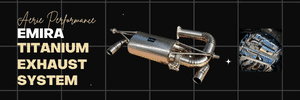Lewquatious
Member
- Feb 24, 2024
- 18
- 40
-
Featured
- #801
"I worked in a recording studio" is one of the oldest lines in the book. I used it a few times in bars and laundromats but it never really resonated with the ladies. I worked in a recording studio too, but it never got me to first base with anybody I would actually want to go out with. I didn't include that job as experience because you asked what I did for a living, not where I earned my EE or if I had studio experience. Things on the dating front actually improved significantly once I actually started making money in the trade. Did you ever actually work in a technical capacity for a factory that made audio devices? I did. You asked for my experience , I give it to you freely and then you explained to me that my 45 years in the business, my degree and the some of the positions I held doesn't qualify me to express factual data that would still be recognized science if I was a freshman engineering student rather than a pro in the field. Frankly, my credentials are irrelevant but the facts are the facts, Speaker break in is not a real thing.I don't have any credentials. Nothing scientific, just been a musician for 60 years, and worked in a recording studio for 3, as well as personal experience using many many different speaker systems over those years. No disrespect, but I've known field reps for various companies over the years. What you listed as your credentials to me reads "I'm a sales rep, and have been for 34 years, and I took training courses for what I sold". Nothing wrong with that. I worked in sales too for many years, but that's not the same as an actual audio engineer who designs and tests audio gear. I've known those too. They're a different breed. Every sales rep for every company is always an expert for the product they represent, and absolutely positive what they're telling me is unquestionably true. That's the nature of sales reps. Everybody has a 'link' to prove what they told me is true.
I've experienced and learned many things over the decades, and one thing I've come to realize is while science can be formidable, it still can't explain everything. Regardless of what it's called, something is happening when you suddenly notice a change you weren't expecting or looking for. When that change is enough to get your attention, something happened. You can call it imagination, or whatever you like, but I'm not going to dismiss it because somebody in a lab isn't able to reproduce it.
If it was only me that was experiencing this, then yes, I'd go along with it's me that's changed, but when many many people report this same phenomenon, and have for years, something is actually happening.
As a musician, and having worked in a recording studio, I can tell you that people have various levels of hearing ability. You must have discovered this when dealing with customers. Music instruments that are the same models, have different sound characteristics from each other. Amplifiers that are the same models can have variances, with some just sounding better than others for some reason. You can call it imagination, but when you're used to working with certain things, and suddenly one stands out, you notice it. It is what it is. Based on my own personal experience, and what others are reporting, regardless of what you want to call it, something is changing in high-end speakers after they've had a certain number of hours of real-world usage.
Did you follow my link? I suspect not. It's easy to argue opinion against fact but once you know the physics of the thing, you're less likely to feel comfortable doing that.
Did you post on Lotustalk with a similar screen name (Eagle, if I recall correctly)? Just curious.
Hey, it's all in good fun. If you want to believe that audio electronics require extended break in, feel free to believe in it. It's just not something that is supported by the facts or considered a factor by Harman.....or KEF......when they design their products. Indeed, KEF is a very well respected manufacturer within the fold. Like Harman, that alone doesn't prevent them from designing better or worse products. It's simply that when they do build something, they know exactly why they made the compromises they did and what factors determine a product's performance envelope.
In reality, automobiles, like airplanes, are among the very worst native environments for reproducing accurate audio. I myself don't count the audio system performance in the first tier of features when deciding what performance car to buy. However, like you, I love music and the pleasure good sound brings but I never professionally engaged in 12 Volt design and it has never been a primary interest to me . But I worked professionally in the pro audio trade for 45 years in several capacities. If you lived in the Northwest and worked in the trade during my tenure (retired in 2010), you will know my name and my position in the community. None of that is important when arguing about break in though. What is important when arguing this is the physics, and those argue against the notion that electronics and transducers need extensive break in to perform to spec.
Last edited:








